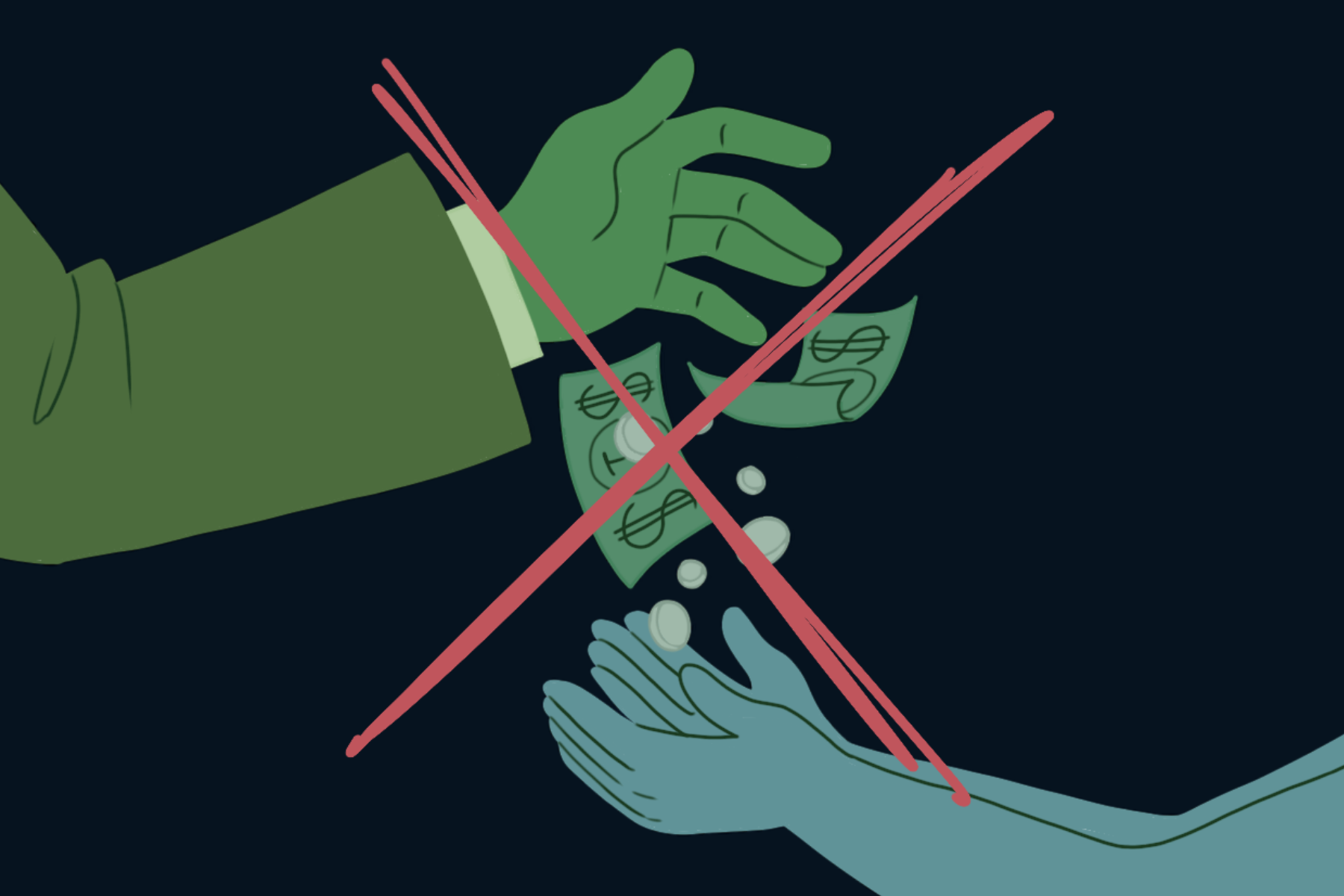Although the federal minimum wage is set at $7.25 per hour, millions of workers across the United States are compensated at a far lower rate due to subminimum wages. Despite federal and state minimum wage laws, many employers are exempt from providing all of their workers with livable wages. This is often true for tipped workers in the service and hospitality industries, as well as workers with mental and physical disabilities. Although they are legal in 43 states, subminimum wages facilitate the exploitation of low-income workers and allow employers to take advantage of the labor of vulnerable employees.
Racist Origins of Subminimum Wage
One of the many problematic aspects of the subminimum wage rate is its origin. In fact, subminimum wages in the United States are a clear and direct remnant of slavery. After enslaved people were emancipated in 1863, many employers found strategies to circumvent compensating newly freed slaves with fair wages. Although tipping was not a universal practice at the time, employers in the service industry hired Black people to work for only tips, rather than a set wage. In other words, the hospitality industry exploited the practice of tipping to avoid providing freed slaves with actual salaries. This incentivized employers to hire more Black employees, as they could avoid paying workers’ wages. By 1880, 43% of tipped workers in hotels and restaurants were Black.
Today, it is no longer legal for employers to hire workers without guaranteeing a set wage. Nevertheless, subminimum wages remain highly prevalent, and the reality is still bleak for the vast majority of tipped workers in the service industry. Currently, the federal subminimum wage rate is only $2.13 per hour. Despite the fact that it has been well over a century since the origin of subminimum wages, the subminimum wage rate remains severely depressed.
Due to systemic inequality, Black Americans comprise a disproportionate percentage of low-wage workers. As a result, Black Americans are more likely to face subminimum wages and depend on tips for a living. In this regard, subminimum wages continue to perpetuate racial inequality and deprive vulnerable workers of fair, livable wages.
Impact on Workers with Disabilities
Americans with intellectual and physical disabilities are also disproportionately affected by subminimum wages. Under current U.S. law, if an employer hires a person with a known disability, the employer has the legal right to attempt to prove that the employee’s disability hinders their workplace productivity. If such an assertion is found to be true, a “prevailing wage survey” is conducted, which compares the disabled worker’s abilities and skill set to that of an average non-disabled worker. In many circumstances, this process allows employers to significantly lower the hourly wage for disabled workers.
In essence, subminimum wages permit employers to discriminate against employees on the basis of mental and physical disabilities. Additionally, subminimum wages create opportunities for employers to take advantage of a vulnerable group of people who often lack the ability to advocate for themselves properly. Subminimum wages are inherently ableist and devalue the time and effort of disabled workers.
Sexual Harassment
Without a guaranteed full minimum wage, many workers in the service and hospitality industries must rely almost entirely on tips for their paycheck. This renders employees extremely vulnerable to sexual harassment from customers, as they are forced to tolerate inappropriate behavior to make a living wage and provide for themselves. In fact, tipped workers in the service industry experience more sexual harassment than workers in any other industry in the United States. This can be largely attributed to the fact that many tipped workers are unable to assert boundaries without sacrificing their basic pay.
In other words, when workers’ salaries are contingent on the tips they earn, sexual harassment is rampant. Unfortunately, 76% of female subminimum wage workers have experienced sexual harassment on the job. Many low-wage workers in the service industry must make the impossible decision between paying their bills and speaking up against sexual harassment; unsurprisingly, to make ends meet, most workers are forced to remain silent.
Given that most employees in the service industry are female, subminimum wages disproportionately affect women, particularly women of color. Once again, it is clear that subminimum wages most negatively impact the most vulnerable members of society. Since tipped workers are often unable to assert boundaries because of financial constraints, many female workers internalize sexual harassment in the workplace as inevitable and tolerable, rather than unacceptable. This has severe implications for female workers’ self-esteem and overall experience in the workforce.
Furthermore, evidence shows that female employees who engage in flirtatious behavior with customers at work earn significantly higher tips. This is especially true for women who permit physical contact from customers. Consequently, tipped workers are encouraged to sexualize themselves and act provocatively to make higher earnings, regardless of whether they are uncomfortable doing so. In order to make a living wage, female workers must often place themselves in deeply uncomfortable and potentially dangerous situations.
Health and Safety in the Workplace
Although subminimum wages have always been inherently problematic, the pandemic presented even greater, more complex challenges for subminimum wage workers. Since the onset of COVID-19, workers in the service industry have been forced to endure significant health risks in order to maintain their employment status. Unable to opt for remote work, workers in the service industry continued to work in person despite potential dangers.
To make matters worse, many subminimum wage workers were faced with frequent resistance from customers who refused to abide by social distancing protocols and mask policies. Once again, given that tipped workers must rely on tips for their basic pay, many were unable to assert boundaries with customers and therefore exposed themselves to even greater health risks.
Benefits of Full Wages
As demonstrated, subminimum wages are deeply detrimental to the health, wellness and financial security of workers in the service industry. Not only do subminimum wages facilitate ableism and sexual harassment, but they also hinder social mobility by preventing the lower class from rising out of poverty. While many expect the elimination of subminimum wages to have negative economic repercussions, evidence indicates otherwise; states that provide better pay for workers have actually experienced greater job growth than states with subminimum wages.
Evidence also shows that the elimination of subminimum wages would lead to greater social equality on a national scale. The abolition of subminimum wages would not only uplift disabled persons but would also ensure that people of color and women in the service and hospitality industries are compensated fairly and equally. Furthermore, eliminating the subminimum wage rate would help to alleviate poverty on a national scale.
Subminimum wages are an archaic and outdated practice. In a just society, all workers should have the ability to earn livable and fair wages, regardless of the industry in which they are employed. To ensure the fair treatment of all American workers, subminimum wages must be abolished.
















